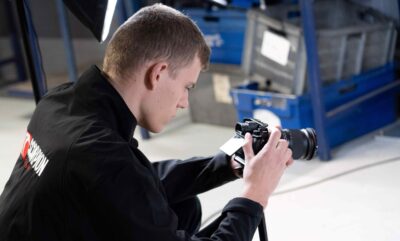We offer a wide variety of apprenticeship subjects, all individually designed to support both your and your employer’s needs and career goals. We call each apprenticeship subject a ‘standard’, this is basically an apprenticeship version of a course title.
Gas Engineering and Electrical Installation Apprenticeships
Level 3 Gas Engineering Operative
36 months plus 3 months for the End Point Assessment
Level 3 Gas Engineering Operative (progression route)
24 months (plus 3 months for the End Point Assessment)
Level 3 Installation & Maintenance Electrician Progression Route
27 months +6 months EPA
Level 3 Installation & Maintenance Electrician
Chesterfield – 42 months +6 months EPA
Engineering and Manufacturing Apprenticeships
Level 3 Engineering Technician
• 40 months • Time-scales may vary depending on occupational role and/or prior relevant qualifications/ experience and Assessment of Prior Learning and Knowledge (APL/K) opportunities.
Level 3 Engineering Fitter
Typically 36 months but can be adjusted to the need of the individual employer.
Level 2 Engineering Operative (Derby)
Duration: 15 months
Level 4 Engineering Manufacturing Technician
Duration: 42 months.
Level 3 Metal Fabricator
Duration: 33 months
Level 3 Maintenance and Operations Engineering Technician (Electrical and Mechanical Pathways)
Duration: 36 months.
Level 3 Machining Technician Chesterfield
Duration:
Chesterfield – 42 months +3 months EPA
Level 3 Machining Technician Derby
Duration:
36 months plus 3 months for End Point Assessment
Level 2 Welder
Duration: 18 months +3 months EPA
Chesterfield College Open Day
Thinking about studying at college? Come along to one of our Open Evenings to learn more about the many courses and apprenticeships we have to offer.

